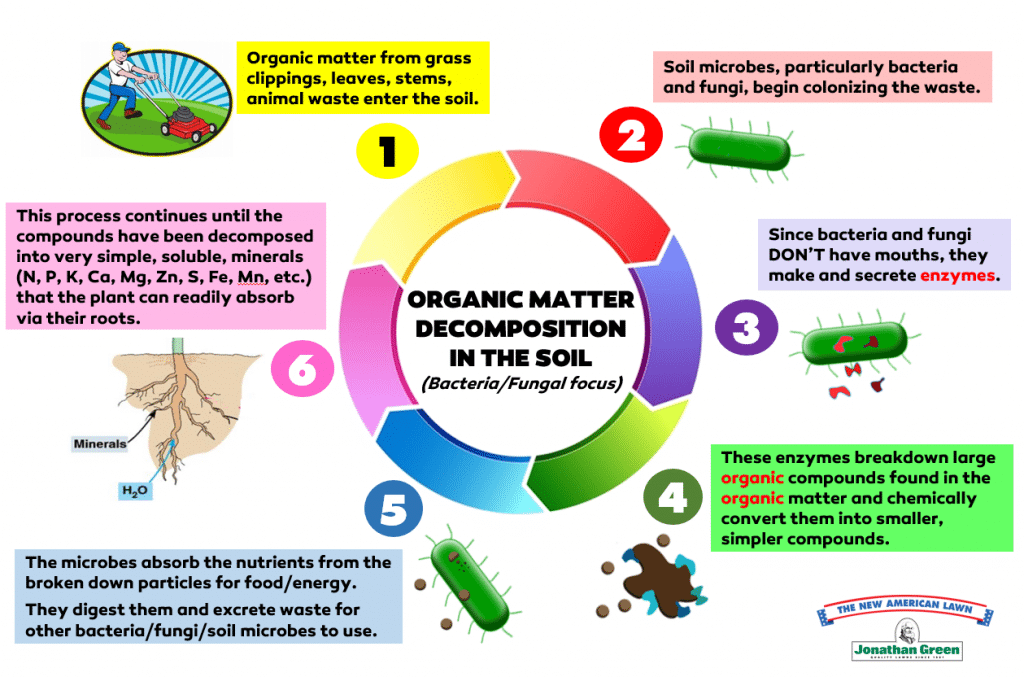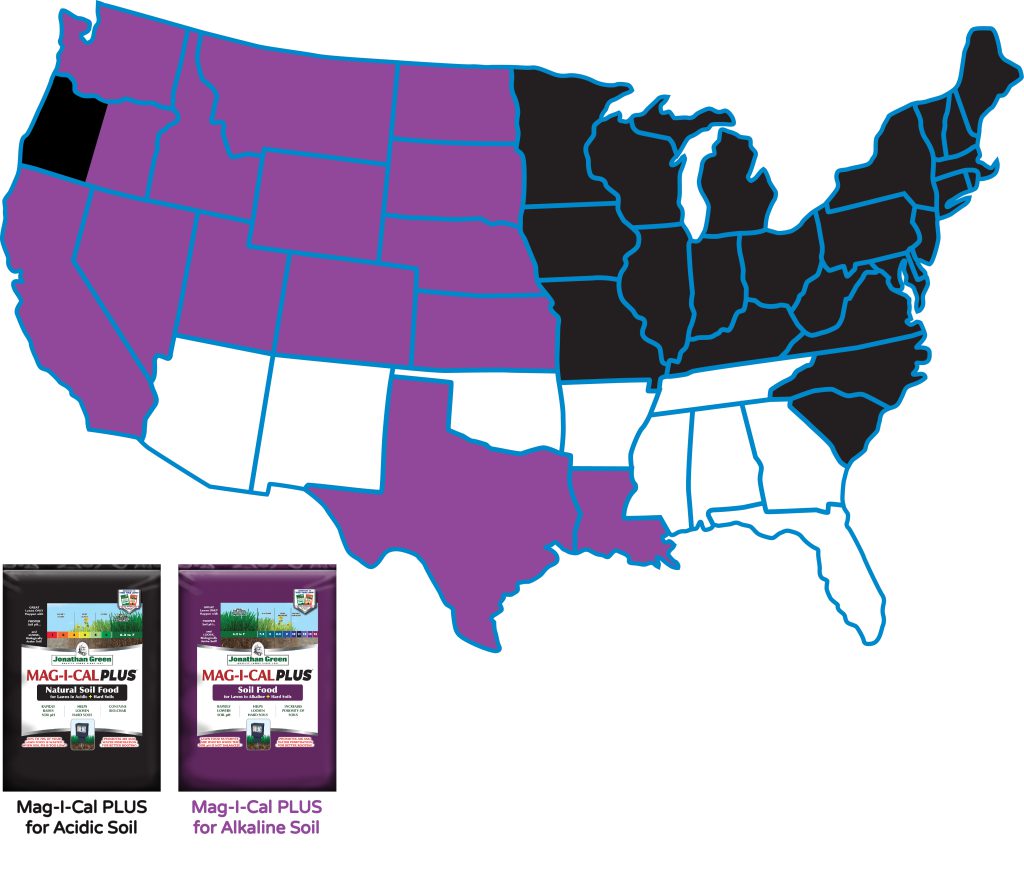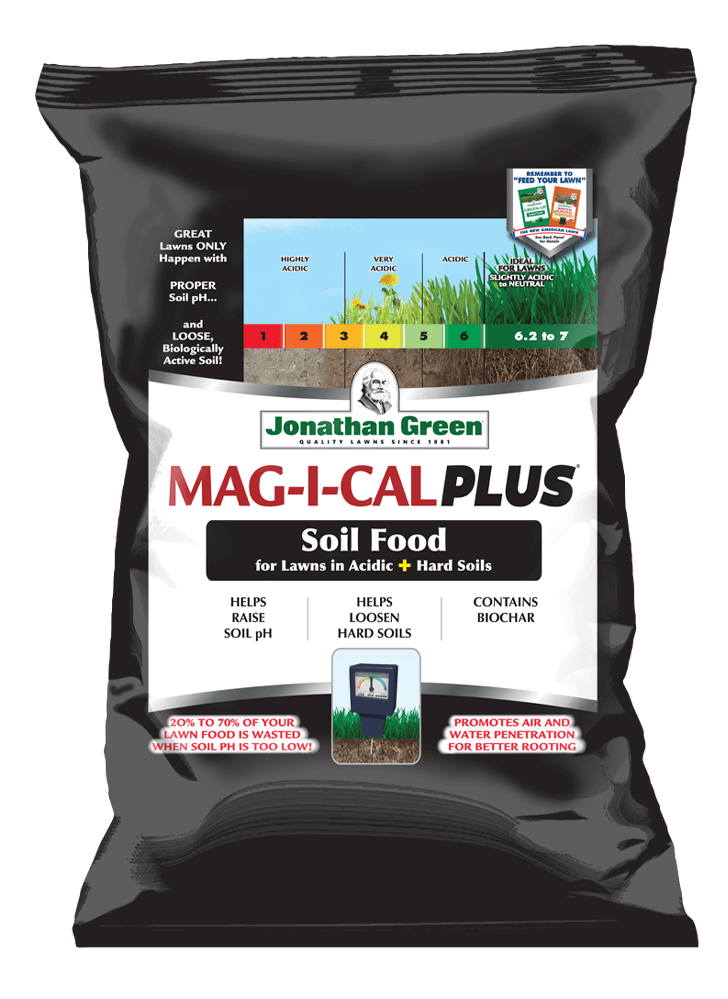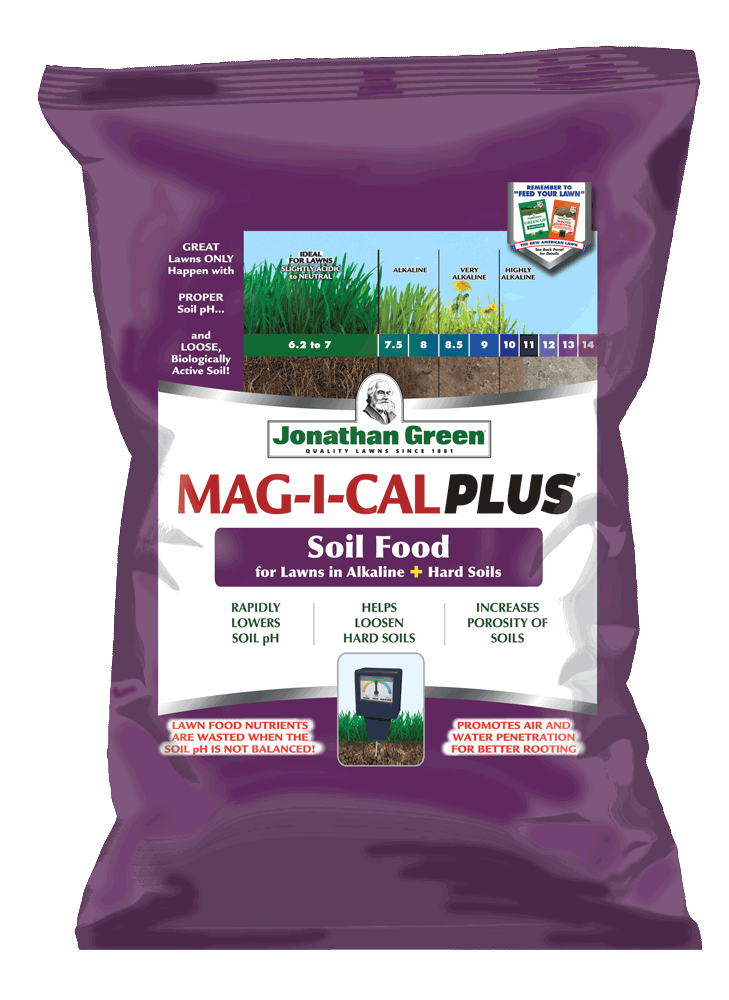Your Soil’s Health
The health of all living things, including plants, animals, and even humans, is connected to the health of the soil.

Improving Your Soil’s Health
Proper soil health depends on many factors, but three are the most important – balanced pH, loose/porous soil, and healthy microbial populations. Let’s explain the importance of each and how you can improve your soil’s health.
A Well-Balanced Soil pH
An imbalanced soil pH, either with too much acidity (H+ ions) or too much alkalinity (OH- ions), greatly impairs the amount of lawn fertilizer nutrients – and other nutrients in the soil – that are absorbed by grass plants. If the soil solution (water in the soil) and/or soil colloids (microscopic soil particles that harbor nutrients until they are ready to be absorbed by roots) get clogged up with too many H+ or OH- ions, then “good” nutrients simply can’t gain access to the roots and, in turn, the plant itself. Indeed, if the soil pH is very poor, then nutrients may leach. (A study at Cornell University showed that 20% to 70% of nutrients may be wasted if soil pH is too low.)
Aerating Hard Soil
It is vital that soil is loose and porous. Hard soils prevent air and water from penetrating into the root zone of plants. This inhibits root growth and allows for plants to wilt and, if very compacted, die. Hard soil can cause nutrient runoff, while also allowing lawn diseases to occur and spread more rapidly. Loose soil reverses these dilemmas. As with people, air and water are critical to the proper biological function, life, and health of plants. Accordingly, the soil microbial life relies on air and water to live, too.
Healthy Microbial Populations
There is a direct relationship between the quantity of organic material in the soil and the number of microbes in the soil. The more organic matter (leaves, humus, manures, compost, etc.) in the soil, the more biologically active the soil is and, accordingly, the more beneficial microbes there are. Biologically healthy soils provide the ideal foundation for grass plants to flourish and resist diseases, insects, and environmental stresses.
Common, synthetic fertilizers release to grasses quickly (usually within six weeks). They bypass much of the microbial life and go right to the plant. Pesticides kill weeds and insects but do harm to beneficial microbes as well. Adding organic fertilizers and natural soil amendments to the lawn are extremely important to keep soil microbial populations healthy and abundant. Sadly, the overuse of synthetic products has had the opposite effect on the soil biology.
New MAG-I-CAL PLUS:
Mag-I-Cal Plus® is a unique and natural soil food that addresses the three key soil problems outlined above in the following ways:
First, Mag-I-Cal® Plus for Lawns in Acidic & Hard Soil (ideal for pH that is below 6.5) and Mag-I-Cal® Plus for Lawns in Alkaline & Hard Soil (ideal for pH that is above 7) rapidly adjust soil pH into the correct range.
Second, Mag-I-Cal Plus for Acidic Soils and Mag-I-Cal Plus for Alkaline Soils contain highly concentrated gypsum that is specially formulated to loosen and aerate hard soils quickly. (Core aerating machines provide temporary results and will “re-compact” in a few months when the cores resettle.)
Finally, each version of Mag-I-Cal Plus stimulates soil microbial life by providing natural humates and iron to the soil. Furthermore, Mag-I-Cal® Plus for Lawns in Acidic & Hard Soil adds bio-char, which further stimulates microbes and provides greater water retention for plants. (Bio-char is not found in Mag-I-Cal® Plus for Lawns in Alkaline & Hard Soil because it tends to add alkalinity to the soil.)
Mentioned Products
General Soil pH Guide for Mag-I-Cal PLUS*
*Soil pH may vary in your local area. Soil testing and State University data will provide more specific results.


